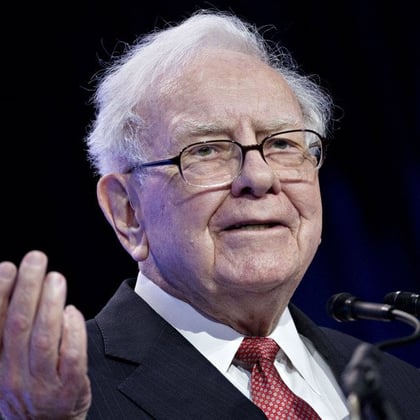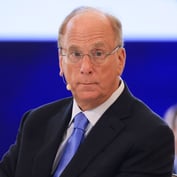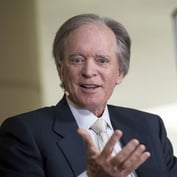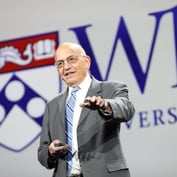What You Need to Know
- In annual remarks to shareholders, he shares wisdom on managing Berkshire Hathaway and on life and investing.
Warren Buffett’s textile business-turned-conglomerate spent last year quietly inching into the future.
Berkshire Hathaway Inc. dug deeper into technology stocks in 2021 with a bet on Activision Blizzard Inc., bulked up on buybacks and announced that Greg Abel was the top pick to succeed Buffett whenever the 91-year-old steps down as chief executive officer.
Now, Buffett has a chance in his annual letter on Saturday to explain how these incremental moves will keep the conglomerate pushing forward.
“Looking at valuations, it’s perfectly in sync with the long-term strategy of not overpaying for stuff,” said Meyer Shields, an analyst at Keefe Bruyette & Woods.
The Activision move by one of Buffett’s deputies shows “that they do have liberty to invest in the sea of equities that they understand and it doesn’t all have to necessarily get filtered through Warren Buffett, in which case I think it is predictive of, at least conceptually, the sort of thing we should expect going forward.”
Investors look to Buffett’s letter each year to learn about his strategy for steering the more-than $690 billion conglomerate, and to revel in the billionaire’s folksy wisdom on life and investing.
Buffett’s task has been complicated in recent years as high valuations stymie one of his favorite capital-deployment options — dealmaking — and as Berkshire throws off more cash than he can quickly deploy.
That’s led Berkshire to make some changes. Buffett and his longtime business partner, Vice Chairman Charlie Munger, came to technology stocks “like some newborn infant that’s dragged there,” Munger recently told Yahoo Finance.
But now, Apple Inc. ranks as Berkshire’s biggest equities bet, with a stake worth $157.5 billion at the end of 2021, roughly 3.5 times the size of its second-biggest investment in Bank of America Corp.

Buffett’s investing deputies, Todd Combs and Ted Weschler, have also expanded Berkshire’s horizons. The Activision Blizzard investment was made just a few months before Microsoft Corp. agreed to buy the game maker.
There’s been a “tremendous shift that has occurred toward technology and communication-services stocks,” Jim Shanahan, an analyst at Edward Jones, said in a phone interview. “That never would have happened without those two lieutenants.”
Buffett loosened Berkshire’s buyback policy to help him deploy the firm’s cash pile of nearly $150 billion. The Omaha, Nebraska-based firm repurchased $20.2 billion of stock during the first nine months of 2021.
See: 4 Stocks Warren Buffett Didn’t Sell in Q4: Morningstar
The pace may have flagged in the fourth quarter when the Class A shares climbed nearly 10%. Along with the letter, Berkshire plans to announce earnings on Saturday morning, which should include details on buybacks.
The letter also holds the potential to offer insight into Berkshire strategies after the eventual departures of Buffett and Munger, who is 98. Buffett divulged one big detail last year when he confirmed that Abel, a key deputy who oversees all non-insurance businesses, would be the top candidate to someday replace him.
Any handover is most likely to occur when Buffett or Munger are no longer able to run the business, Shields said. Berkshire plans to hold its annual meeting in person this year for the first time since the pandemic began, offering investors a glimpse at how the pair is doing.
“I haven’t seen anything to suggest that their capabilities have deteriorated over the last 12 months and, barring some sort of news that they haven’t disclosed, I wouldn’t expect that to change,” Shields said. “I think we’ll see the sort of steady expansion of Greg’s responsibilities.”








 February 24, 2022 at 02:35 PM
February 24, 2022 at 02:35 PM












 Copyright © 2024 ALM Global, LLC. All Rights Reserved.
Copyright © 2024 ALM Global, LLC. All Rights Reserved.